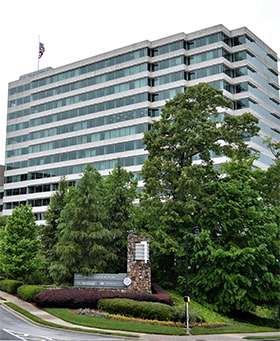Trade Secrets
Trade Secrets
Practice Lead Contacts: Steve Hill and Doug Kertscher
We have considerable experience in litigating trade secret matters, including matters of theft or inappropriate disclosure of proprietary or trade secret matters, and the violation of the Georgia Computer Theft Act, which prohibits the transfer of data via computer, computer disk, etc. Frequently these matters require a strong technical background in computers or other high-technology matters, balanced by an understanding of laws relating to a person’s ability to leave the employment of one company to accept employment with another. Thus, trade secrets cases allow HKW to leverage our considerable experience in both technology litigation and employment law.
Trade secrets law is more important than ever. On May 11, 2016, President Obama signed into law the Defend Trade Secrets Act of 2016 (“DTSA”). This is the most significant trade secret law in twenty years or more. DTSA will expand the Economic Espionage Act of 1996 to create a federal civil cause of action for trade secret theft. Prior to DTSA, civil actions for theft of trade secrets were a matter of purely state law.
State laws offering trade secrets protection remain in place. DTSA does not eliminate or preempt the the states from also protecting trade secret rights. DTSA adds additional federal protection for trade secrets.
DTSA provides a federal civil cause of action for trade secrets “related to a product or service used in, or intended for use in, interstate or foreign commerce.” DTSA includes procedures for obtaining a civil seizure order, and remedies for trade secret misappropriation.
What is a Trade Secret?
In trade secret litigation, defining the trade secret is often the most fundamental aspect of the case. For example, when we defended start-up company in trade secrets litigation brought by a multinational corporation which was the former employer of several of the start-up founders, we were able to convince a federal judge to order the plaintiff to provide a specific definition of each trade secret that it claimed was misappropriated before our client had to turn over any documents about its business in discovery. This prevented the plaintiff from being able to morph its claimed trade secrets into things that our client was doing, and we prevailed in the case.
DTSA defines a trade secret in a manner that is familiar to state law trade secrets practitioners. It is information that “(A) the owner thereof has taken reasonable measures to keep such information secret; and (B) the information derives independent economic value, actual or potential, from not being generally known to, and not being readily ascertainable through proper means by, another person who can obtain economic value from the disclosure or use of the information.” This definition is consistent with Georgia’s own law against trade secrets misappropriation.
Of course, this begs the question what is a “reasonable measure.” Although each situation is potentially different and may call for individualized protection strategies, there are some a few steps which many businesses take to keep their information reasonably secure, so that they are in the best position to claim trade secret protection when push comes to shove:
- Mark sensitive material “CONFIDENTIAL”
- Instruct employees to treat the information as confidential
- Restricted access to persons with a business reason to know the information
- Keep the information in a restricted or secured area
- Use confidentiality or nondisclosure agreements with those who are to be given access
- Employ digital restrictions, passwords and authentication routines for electronically stored data
What is Misappropriation?
Under DTSA, trade secret misappropriation is the acquisition, disclosure or use of a trade secret by “improper means.” An “improper means” refers to “theft, bribery, misrepresentation, breach or inducement of a breach of a duty to maintain secrecy, or espionage through electronic or other means” but “does not include reverse engineering, independent derivation, or any other lawful means of acquisition.”
Remedies – Injunction and Damages
In a civil action brought under the DTSA, a court may—
(A) grant an injunction—
(i) to prevent any actual or threatened misappropriation on such terms as the court deems reasonable, provided the order does not—
(I) prevent a person from entering into an employment relationship, and that conditions placed on such employment shall be based on evidence of threatened misappropriation and not merely on the information the person knows; or
(II) otherwise conflict with an applicable State law prohibiting restraints on the practice of a lawful profession, trade, or business;
(ii) if determined appropriate by the court, requiring affirmative actions to be taken to protect the trade secret; and
(iii) in exceptional circumstances that render an injunction inequitable, that conditions future use of the trade secret upon payment of a reasonable royalty for no longer than the period of time for which such use could have been prohibited.
A court may also (B) award—
- (I) damages for actual loss caused by the misappropriation of the trade secret; and
(II) damages for any unjust enrichment caused by the misappropriation of the trade secret that is not addressed in computing damages for actual loss; or
- in lieu of damages measured by any other methods, the damages caused by the misappropriation measured by imposition of liability for a reasonable royalty for the misappropriator’s unauthorized disclosure or use of the trade secret.
Double Damages May Be Awarded in Certain Cases
If a trade secret is willfully and maliciously misappropriated, a court may award exemplary damages in an amount not more than 2 times the amount of the damages awarded under subparagraph (B) above.
Attorneys Fees May Be Awarded
If a claim of the misappropriation is made in bad faith, which may be established by circumstantial evidence, a motion to terminate an injunction is made or opposed in bad faith, or the trade secret was willfully and maliciously misappropriated, award reasonable attorney’s fees to the prevailing party.
We represent plaintiffs and defendants in trade secrets cases throughout the United States. These cases require great planning and expert judgment. If you have any questions, please call 770-953-0995 or click here to contact us with a request for consultation.



